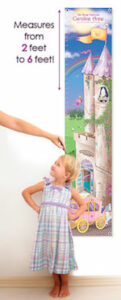 In the first year of life, your baby will develop so much that you’ll be constantly wondering what the next milestone is. One of the biggest transitions in a new baby’s life is the introduction of solid foods. Many families, especially first-time parents, find themselves wondering about the solid food transition and whether or not their baby is ready to make the move. If you find yourself wondering if your baby is ready for solid foods yet, you’re in the right place! In this blog, we’ll cover the solid food transition and all you need to know to answer this question.
In the first year of life, your baby will develop so much that you’ll be constantly wondering what the next milestone is. One of the biggest transitions in a new baby’s life is the introduction of solid foods. Many families, especially first-time parents, find themselves wondering about the solid food transition and whether or not their baby is ready to make the move. If you find yourself wondering if your baby is ready for solid foods yet, you’re in the right place! In this blog, we’ll cover the solid food transition and all you need to know to answer this question.
First of all, there is no right or wrong answer to this question. Every baby is different, and there isn’t a magic age at which your child is 100% ready for solids. You know your baby best, making you the best person to decide if your babe is ready for the solid food transition yet.
To help you decide, consider these important factors that will help you determine if your baby is ready for solids:
- Age: Experts agree that by 4 to 6 months old, babies are typically ready to begin the process of trying out solid foods if the following behaviors are present. If your child does not appear to be ready, don’t force the issue. He or she will get there soon. ?
- Sitting Up: In order to successfully transition to solid foods, your baby should be able to sit up largely unassisted, and should also be able to hold his or her head steady for several minutes. It’s safest for your baby to eat when they are upright, so making sure they can maintain this position is critical before beginning. ?
- Eager for Food: When babies are ready for solid foods, they will become much more interested in what you are eating and may even grab for food in your hands, on your plate, or near them. When you start to see your child become eager for food, chances are they’re telling you they are ready. ?
- Weight: The American Academy of Pediatrics suggests that a good rule of thumb is that your baby has at least doubled their original birth weight and weighs 13 pounds or more before you begin introducing solids. This ensures your baby has developed enough to handle the food. ?
- Health: As with anything baby-related, wait until your baby is completely healthy – free of fevers, colds, or other ailments – before you introduce something new. Solid foods can be a bit of a shock to the system, and it’s best if your child is in his or her best shape before starting.
Please note: just because your baby may be ready for solid foods does not mean this should become his or her sole source of nutrition. Breast milk or formula should still be their primary source of food until the age of one. Most agree that solid foods before the age of one are largely for experimentation and skill development. The solid food transition should be a slow and steady process, introducing only one new food every few weeks to monitor for allergies and tolerance. If you have questions about the solid food transition, please consult your child’s pediatrician.
No luck? If you’ve recently tried solid foods and didn’t have much luck, never fear. Take a several-week break and try again. Babies develop at an incredibly fast pace, and a break can make all the difference in your child’s developmental readiness for solid foods. In no time, your child will be stealing food off your plate!
Everyone says parents shouldn’t blink because it goes so fast. While this might be an old adage, it’s true. Babies grow so fast, and before we know it, the solid food transition will be a thing of the past. Help preserve your family memories and mark these days in history with one of the many special customized gifts available from Birthday Keepsakes. We’ll help you remember just how small your baby once was.




